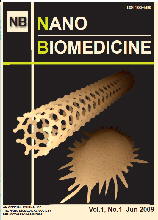Synopsis
The Embryo Stem Cell Test (EST) protocol is an in vitro embryotoxicity test that has been internationally recognized as a screening protocol capable of predicting the risks of chemicals in normal human newborns through large-scale international validation. Mouse iPS cells are known to have characteristics similar to those of ES-D3 cells used in the EST protocol. We examined whether mouse iPS cells can be substituted for ES-D3 cells by investigating their differentiation and viability with C60 fullerenes, demonstrating that C60 fullerenes could be classified as "non-embryotoxicity." In addition, we compared the results with those obtained with conventional ES cells, revealing that mouse iPS cells could be employed because we obtained the same results as those with ES-D3, EL M3, and ES-R1 cells. C60 fullerenes are insoluble in culture solution, and, therefore, are inapplicable to the EST protocol, which requires solubility in culture medium. No embryotoxicity test has been developed for nanomaterials phagocytosed into cells. Therefore, a embryotoxicity test specialized for nanomaterials is expected.
Key words: C60 fullerene, cell differentiation, cell viability
All documents in this paper (Free)
J-Stage
https://www.jstage.jst.go.jp/article/nano/10/1/10_10_15/_article/-char/en
DOI
https://doi.org/10.11344/nano.10.15
